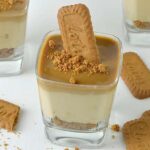Coffee and snacks are essential to our daily routine, providing us with the energy and fuel we need to power through the day. However, as much as we enjoy these daily indulgences, it’s important to make smart choices regarding our coffee and snack choices. The food and drinks we consume can significantly impact our health and well-being, both in the short and long term.
Making smart choices when it comes to coffee and snacks can help us maintain a healthier lifestyle and provide us with the necessary nutrients and energy our bodies need. In this blog post, we will really explore some practical tips and strategies for making smarter coffee and snack choices. We’ll look at ways to incorporate healthy ingredients into our coffee and snack choices and ideas for swapping out less healthy options for healthier alternatives. To learn more about the quality coffee that is good for your health visit Planetary Design.
We can make a big difference in our overall health and well-being by making small changes to our daily coffee and snack choices. Whether it’s adding more whole foods and healthy ingredients to our snacks or swapping out sugary drinks for healthier alternatives, there are many simple and easy ways to make smarter choices. So, let’s dive in and really explore the world of smart coffee and snack choices!
Understanding what makes a snack healthy
Choosing healthy snacks can be challenging, but understanding what makes a snack healthy can make the process much easier. One of the key factors to consider when selecting a snack is its nutrient density. Nutrient-dense foods are those that provide a super high amount of nutrients, such as vitamins, minerals, and fiber, relative to their calorie content.
These types of foods can help to support overall health and well-being, as well as provide sustained energy.
Some examples of nutrient-dense snack options include fresh fruits and vegetables, nuts and seeds, and whole-grain options. Fruits and vegetables are excellent sources of vitamins, minerals, and fiber and can be enjoyed fresh, frozen, or dried. Nuts and seeds are also a great source of healthy fats, protein, and fiber and can be taken as a snack or added to meals for extra nutrition. Whole grains, such as whole grain crackers or bread, provide complex carbohydrates that can help to provide sustained energy.
In addition to nutrient density, it’s also important to choose snacks that are low in calories. This can be achieved through portion control or by choosing low-calorie options. For example, sugar-free options, such as sugar-free yogurt or sugar-free gum, can provide a sweet treat without the added calories from sugar. Similarly, portion-controlled snacks, such as pre-packaged snack bags or single-serving options, can help to keep calorie intake in check.
Finally, choosing snacks that provide sustained energy is also important. Snacks that are high in sugar can lead to a quick energy boost but may also lead to a crash later on. Snacks high in complex carbohydrates, such as whole grains, fruits, and vegetables, can provide sustained energy and help keep you feeling full and satisfied between meals.
Common unhealthy snack choices to avoid
Processed snacks are often high in calories, unhealthy fats, and added sugars. These snacks can include chips, cookies, crackers, and other packaged snacks. High-sugar snacks such as candy, soda, and fruit juices should also be avoided as they can cause sugar spikes and crashes.
High-sodium snacks such as pretzels, popcorn, and salted nuts can also be harmful to our health.
Making smart choices when it comes to coffee
Coffee is a popular beverage that provides an energy boost. However, it is important to make smart choices when it comes to coffee. Choosing black coffee instead of flavored or sweetened options can significantly reduce our sugar and calorie intake.
Avoiding sugary additives such as syrups, whipped cream, and chocolate can also help to reduce sugar intake. Opting for low-fat milk instead of whole milk or cream can also help to reduce our saturated fat intake.
Healthy snack options
Healthy snack options can include fresh fruits and vegetables, nuts and seeds, whole grain options, and low-fat dairy. Fresh fruits and vegetables are rich in vitamins, minerals, and fiber. Nuts and seeds are high in healthy fats and protein. Whole-grain options such as whole-grain crackers, bread, and cereal are high in fiber and complex carbohydrates. Low-fat dairies, such as Greek yogurt and low-fat cheese, can also provide a good source of calcium and protein.
Smoothie bowls are a quick and easy snack idea that can be customized to fit individual preferences. Yogurt parfaits can also be a simple and healthy snack option that can be prepared in advance. Roasted chickpeas are a crunchy snack that can be seasoned to taste. Hummus and veggie sticks can provide a satisfying salty and crunchy snack.
Preparing snacks in advance can be a great way to ensure that healthy options are readily available. Meal prep ideas can include:
- Preparing fresh fruits and vegetables.
- Cutting up and portioning out nuts and seeds.
- Prepping smoothie ingredients.
- Making homemade energy bars.
Tips for storing snacks include using airtight containers, portioning snacks in advance, and storing perishable items in the fridge.
How to avoid the temptation
Creating a healthy snack environment can help to reduce temptation. Removing unhealthy snacks from the pantry and fridge and replacing them with healthy options can be a great way to avoid temptation. Practicing mindful eating by taking the time to savor each bite and paying attention to hunger cues can also help to reduce overeating.
Making gradual changes to our diet can be an effective way to make healthier choices. Celebrating small wins, such as choosing a healthy snack option or opting for black coffee, can help to keep us motivated. Encouragement to continue making smart choices for a healthier lifestyle can help to improve our overall health and well-being.




Leave a Reply